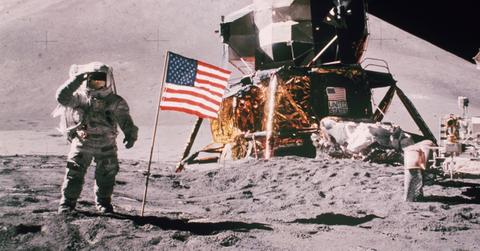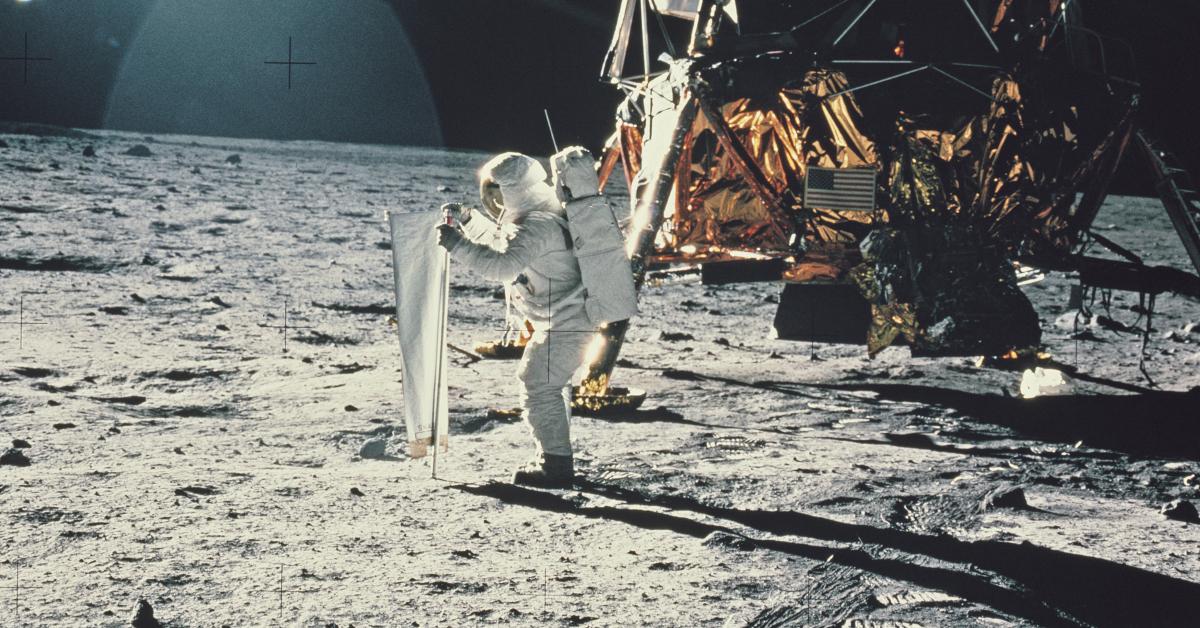We Haven’t Been to the Moon for Years — Why Did We Stop?
Published Dec. 28 2021, 8:45 a.m. ET

Human beings are probably the only species that isn't innately specialized. We've got pretty well-developed brains, we're at the top of the food chain, and we can make smartphones. Pretty much every other living thing out there is born specialized. Squirrels, for instance, are more than happy to climb trees, gather nuts, and mate. They don't need to write screenplays or become CEOs.
But humans can do some pretty extraordinary things. We went to the moon, for instance. But we haven't been in a long time. So why did we stop?
Why did we stop going to the moon?
The space race is one of the proudest moments in American history. Was it practical? Absolutely not. Was there any reason for us to go to the moon other than the fact that it was an astounding accomplishment? Probably not, but our species found a way to get off the planet we somehow ended up on and land an expertly crafted vessel on the giant night-time floating rock we had been staring at for some 300,000 years. And it was awesome.

The socio-global impact of the Apollo 11 moon landing mission in July of 1969 was massive. What followed were six other trips to the big gray rock. Only one of these missions failed, and a grand total of 12 men traversed the moon's surface. Two years before the final manned mission to the moon, Apollo 17, which lasted from Dec. 7-19, 1972, it was announced that further trips to the moon would be canceled.
The biggest reason had to do with funding. It was ridiculously expensive. The total cost of the Apollo program, which ran from 1960 to 1973, cost the United States a whopping $25.8 billion. Adjusted for inflation that number sits at a staggering $257 billion.
Then there was the question of waning enthusiasm for the program. Human beings tend to get "over" things pretty quickly, and constantly going to the moon didn't seem like the crazy challenge it was for the Apollo 11 mission once we did it several times.
There was a spirit of healthy competition between the United States and Soviet Union when the Apollo 11 mission first began. The Space Race was a huge incentive for the U.S. to get boots on the zero-gravity ground in 1969. After we became the first to do it, it seemed that folks weren't as emotionally or financially invested in moon landings.
The cost of the Vietnam War also curbed further U.S. moon landings.
The conflict in Vietnam further complicated matters. It left a $168 billion hole in America's wallet, which, adjusted for inflation is $1 trillion. During this time, there was also a slew of rising environmental concerns.
This environmental movement launched serious conversations about the destruction of the ozone layer, and launching massive rockets into outer space had folks wondering if that was a great play for mother nature, too.
This doesn't mean that the research of the Apollo programs was in vain, however. It laid the groundwork for advanced manned space missions. Skylab and the Apollo-Soyuz Test Project even implemented the use of spacecraft and rockets used in previous Apollo moon-landing missions.
And now with Jeff Bezos's plans to make a Blue Origin trip to the moon, it seems that we're going to be returning to that great sphere in the sky once again. The Amazon founder will do so on the anniversary of the Apollo 11 mission.